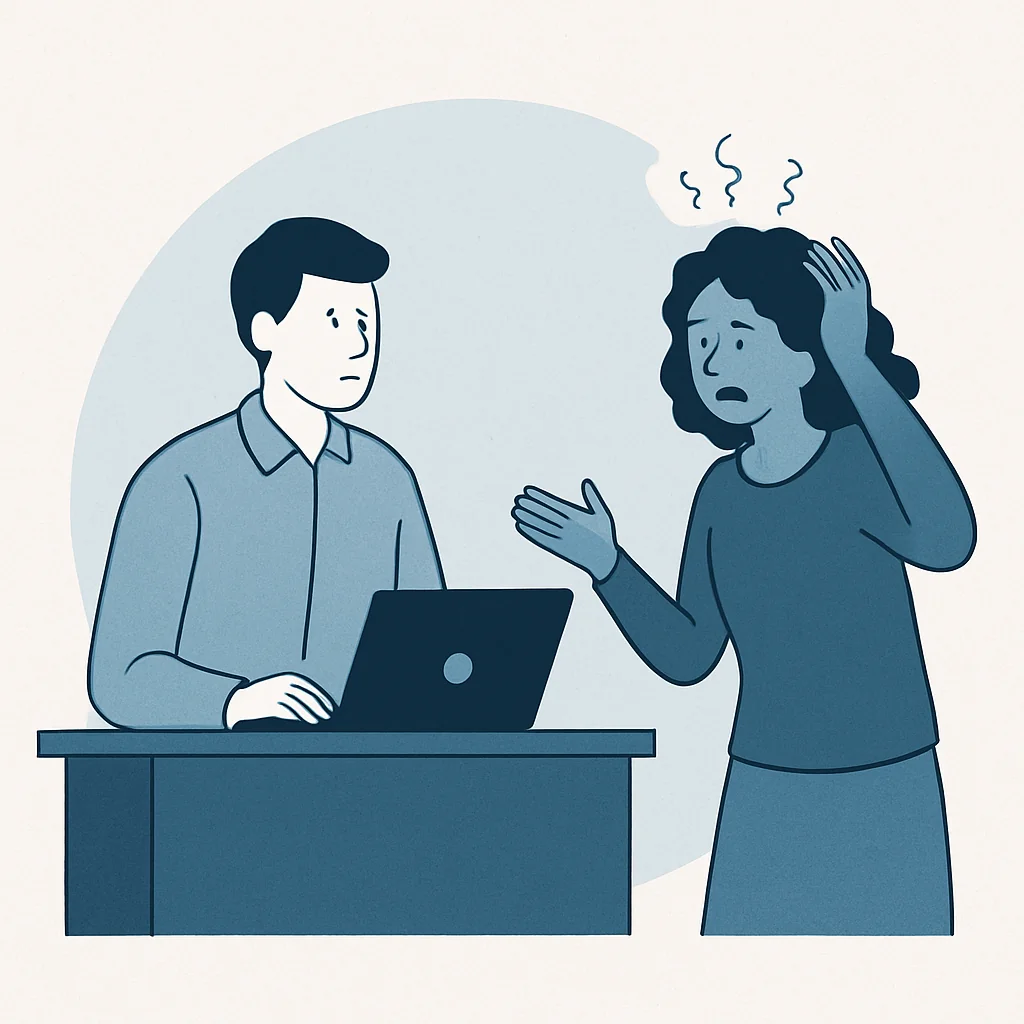
One of the most unpredictable parts of working in customer care is handling unstable customers — especially when you’re unsure whether they’re simply distressed or potentially dangerous. Today, I had a chilling, confusing, yet eye-opening encounter that reminded me how much mental health impacts both those we serve and those of us behind the desk.
She came in quietly, but I could tell something was off. Her appearance was disheveled. Her speech — jumbled, barely coherent. I froze. It’s a reaction I’ve had before around people I suspect may be mentally unstable. I wasn’t sure if I was safe.
My body went on alert. Handling unstable customers was never part of my training. But here I was, face to face with a woman who clearly wasn’t okay — and all I could do was listen.
When Mental Health Walks In
Mental health is a delicate, often unspoken issue in many Kenyan workplaces. But it’s even more complex when it shows up unannounced at your desk.
She kept talking. Her words — mostly disconnected thoughts and stories — spilled out rapidly. I didn’t catch much, and honestly, I didn’t know what to say. I was afraid. I tried keeping my distance, fearing she might hit or lash out, but she kept drawing closer.
At some point, I gave up trying to “handle” her in the traditional sense. I realized I was being invited into a different kind of service moment — one not guided by procedure or customer etiquette, but by human presence. I simply stood there, and listened.
📘 Related Read: If you’ve ever struggled with how to respond during emotional conversations, Emotional Intelligence by Daniel Goleman offers powerful insights on awareness, empathy, and response under pressure.
It reminded me deeply of the power of listening in customer care — how listening, even without understanding, can offer healing to someone who feels invisible.
Mental Health Awareness Belongs in Every Office
Truthfully, I wasn’t ready for it. Handling unstable customers comes with emotional and psychological risks most people don’t see. We, the frontline workers, often absorb people’s chaos without anyone asking if we’re okay afterward.
The woman continued to speak until, quite suddenly, she said, “Let me go before I’m found here.” And with that, she vanished as quickly as she had arrived.
That one line — “before I’m found here” — haunted me. Who was she hiding from? Where had she come from? What kind of life is she returning to? These are the questions that linger after such encounters — questions that no training manual ever prepares you for.
If you’re in customer care in Kenya, you’ve likely had your own moments like this. That’s why I feel so strongly about customer etiquette at the front desk. Because when customers approach us with basic dignity, it helps us serve even better — especially in intense situations.
Lessons I Learned About Handling Unstable Customers
This was more than just another workday. It was a test in fear, empathy, and restraint. Here are some key lessons I took away from this encounter on handling unstable customers:
1. Be Cautious, But Not Cold
It’s okay to be afraid. Safety comes first. But don’t let fear dehumanize the person in front of you.
2. Listening Is Sometimes Enough
You won’t always have the right response. That’s okay. Being present and silent can offer more peace than words.
3. Your Mental Health Matters Too
Encounters like this don’t end when the customer leaves. Take time to process, reflect, or talk to someone about what you experienced.
🧠 Helpful Read: The Body Keeps the Score by Bessel van der Kolk explains how trauma and emotional strain affect our minds and bodies — even in everyday interactions.
4. Mental Health Awareness Is Crucial
We must normalize mental health conversations in our workplaces. Kenya has made steps in this area through the Kenya Mental Health Policy 2015–2030 which outline strategies for awareness, integration, and service improvement.
Handling Unstable Customers Is About More Than Patience
According to the World Health Organization, mental health support in workplaces is critical. It’s time we recognized that handling unstable customers is more than just part of the job — it’s an emotional experience that demands attention, support, and training.
Final Thought
Today, I didn’t assist someone with a form or service. I simply offered space to someone who needed to be seen. It wasn’t easy. It wasn’t clean. But I believe it mattered.
So if you’re on the frontlines, know this: your ability to remain human in the face of unpredictability is your superpower.
And if you’re ever in doubt, just listen. Sometimes, that’s all someone really needs.
Leave a Reply